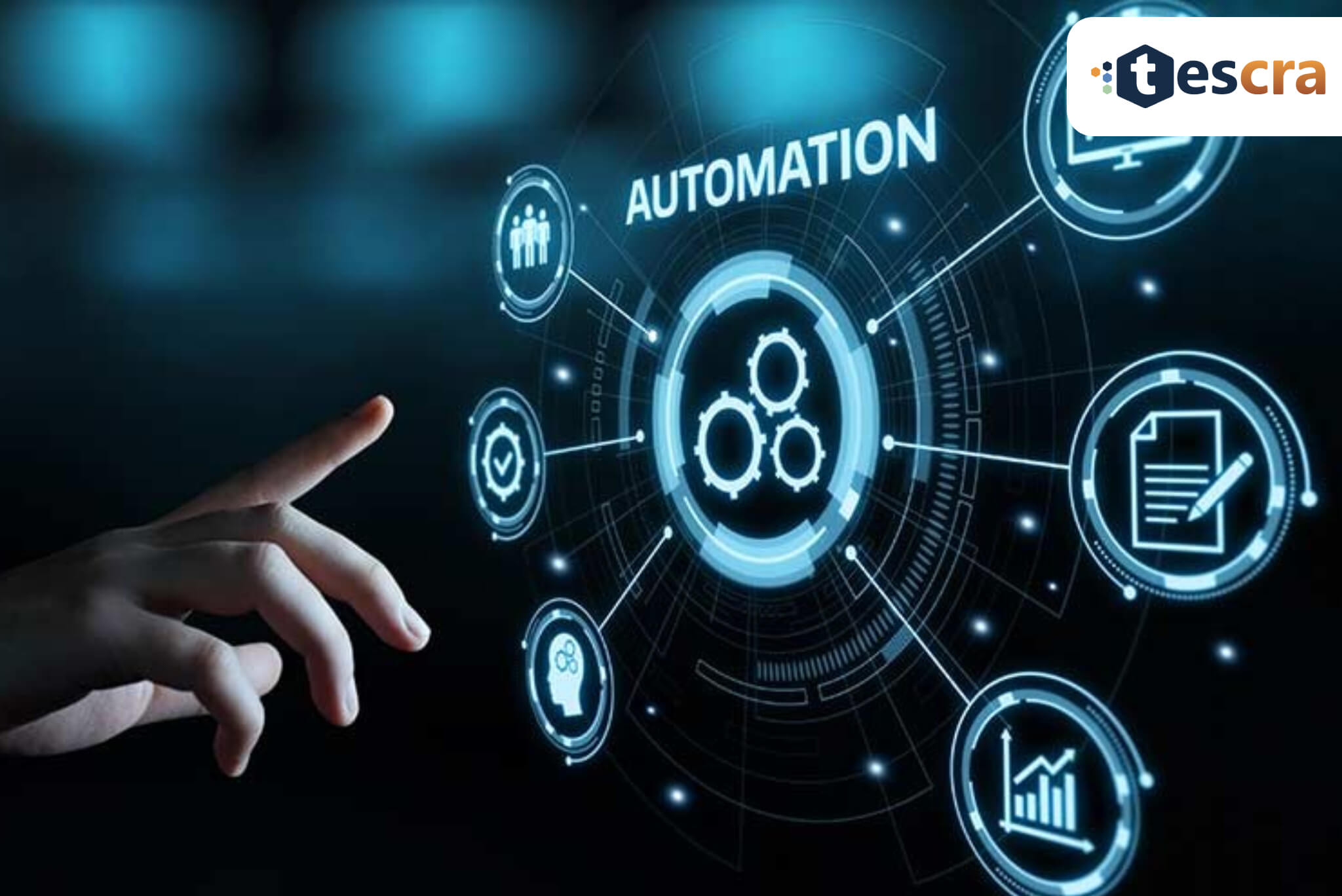n today’s fast-paced digital landscape, businesses are constantly seeking innovative ways to enhance efficiency and remain competitive. One of the most transformative solutions is data-driven intelligent automation, which combines artificial intelligence (AI), machine learning (ML), and big data analytics to streamline operations, reduce costs, and improve decision-making. This technology is reshaping industries, empowering organizations to automate repetitive tasks, optimize workflows, and drive business growth. In this blog, we’ll explore how data-driven intelligent automation is revolutionizing modern business operations and why it’s a critical component for success.
Understanding Data-Driven Intelligent Automation
Data-driven intelligent automation refers to the use of AI-powered tools and analytics to automate business processes intelligently. Unlike traditional automation, which relies on pre-defined rules, intelligent automation adapts and learns from data patterns, making processes smarter and more efficient over time. This capability allows businesses to handle complex tasks, minimize human errors, and optimize resource allocation.
Key components of data-driven intelligent automation include:
- Artificial Intelligence (AI) and Machine Learning (ML): These technologies analyze data, detect patterns, and make intelligent predictions to improve automation processes.
- Robotic Process Automation (RPA): Software bots execute repetitive and rule-based tasks, such as data entry, invoice processing, and customer support.
- Big Data Analytics: Large volumes of data are collected and analyzed to generate insights that inform automation strategies.
- Natural Language Processing (NLP): AI-driven systems interpret and process human language to automate customer interactions and decision-making processes.
The Benefits of Data-Driven Intelligent Automation
1. Enhanced Efficiency and Productivity
Automation eliminates time-consuming manual tasks, allowing employees to focus on high-value work. By leveraging AI and ML, businesses can reduce process bottlenecks, accelerate workflows, and achieve higher productivity.
2. Cost Reduction
By minimizing reliance on manual labor and reducing operational inefficiencies, companies can significantly cut costs. Automated systems operate 24/7 without fatigue, reducing overhead expenses and increasing profitability.
3. Improved Decision-Making
With real-time data analytics, businesses gain actionable insights that drive informed decision-making. AI-powered automation processes vast amounts of data quickly, identifying trends and opportunities that would be impossible for humans to recognize manually.
4. Enhanced Accuracy and Compliance
Automation reduces the risk of human errors, ensuring higher accuracy in tasks like financial reporting, compliance tracking, and data entry. This leads to improved regulatory compliance and mitigates potential risks.
5. Scalability and Agility
As businesses grow, their operations become more complex. Intelligent automation allows organizations to scale efficiently by handling increasing workloads without a proportional rise in costs. It also provides agility by enabling companies to quickly adapt to market changes.
Use Cases of Data-Driven Intelligent Automation
1. Customer Service and Chatbots
AI-powered chatbots and virtual assistants provide instant responses to customer queries, enhancing customer experience while reducing the workload on human agents.
2. Finance and Accounting Automation
From invoice processing to fraud detection, intelligent automation ensures accuracy in financial operations, improving efficiency and reducing financial risks.
3. Supply Chain Management
Automation optimizes inventory management, demand forecasting, and logistics, ensuring smoother supply chain operations with minimal human intervention.
4. Human Resources (HR) and Talent Acquisition
AI-driven automation streamlines HR processes, including resume screening, employee onboarding, and performance management, making recruitment more efficient.
5. Healthcare and Medical Diagnosis
Machine learning algorithms analyze patient data to assist in diagnostics, predict diseases, and recommend personalized treatment plans, improving healthcare outcomes.
The Future of Intelligent Automation
The future of intelligent automation is promising, with advancements in AI, quantum computing, and the Internet of Things (IoT) driving even greater efficiencies. Businesses that adopt data-driven intelligent automation will have a competitive advantage, as they can respond faster to market demands, optimize resources, and deliver superior customer experiences.
Key Trends to Watch:
- Hyperautomation: Combining AI, ML, and RPA to automate complex business processes end-to-end.
- AI-Powered Decision Intelligence: Leveraging AI for predictive analytics to enhance strategic planning.
- Autonomous Systems: Self-learning systems that require minimal human intervention to operate and improve over time.



